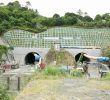DAVAO CITY – Mindanao officials are aiming this month for the Guinness world record for the most number of trees planted in a country simultaneously in one hour. But environment advocates deplore this “gimmick” for failing to address the island’s massive deforestation.
The Department of Environment and Natural Resources (DENR) and the Mindanao Development Authority (MinDA) announced their partnership in this record-breaking attempt set on September 26.
They dubbed as “TreeVolution: Greening MindaNOW” where they target 4.6 million tree seedlings to be planted in areas of the DENR’s national greening program covering 9,200 hectares in selected areas all over Mindanao.
MinDA executive director Janet Lopoz said they are gathering people to join the event by online registration and reaching out to their networks from various sectors.
“The activity is designed to encourage massive participation by stakeholders and sectors in efforts to hit the Mindanao target for the NGP. It is also part of the long-term campaign by DENR and MinDA’s MindaNOW! Program to instill among Mindanawons the consciousness of a sustainable management of environment and natural resources as part of the larger effects of climate change adaptation,” said Lopoz.
She added that volunteers can join as a group or as individuals, as they also seek sponsors for the event or to become “stewards” for the plants.
The current world record holder for this feat is India, which on August 15, 2011 planted 1.9 million tress simultaneously across 408 locations in an hour.
DENR region 11 director Joselin Fragada said their objective is not to simply break the record but “to have more trees planted, to create jobs and to send the message that ever individual has responsibility to care for our environment.”
Fragada estimated that one hectare can be planted with 500 seedlings by 25 people in an hour.
But the seedlings will be composed mostly cash crops such as cacao, coffee and rubber.
“Part of our effort is aimed at increasing production of cacao which is one of the fruit-tree seedlings that will be included in the TreeVolution,” Lopoz said.
Fragada added that these seedlings are needed by people to create livelihood.
MinDA has recently pushed for more cacao production in the island as they target 100,000 hectares and 1,000 growers for this crop.
But such moves have turned off environmentalists, who see this as a gimmick with lack of grounding.
Catholic nun Sr. Noemi Degala SMSM, executive secretary of Sisters’ Association in Mindanao, asked the event sponsors to make their intentions clear.
“I ask them, can they be honest with their intention. If it is business, then let them say so,” she said.
Degala added the variety of cash-crops could not in any way mitigate flooding and denudation in Mindanao.
“These types of trees can grow in three months but they would be sold and regrown. In terms of flooding, can rubber trees be strong enough to resist flooding by holding much water?” she asked.
She also said the cacao crop is prone to pests and may harm the environment, and went further on to point out that cash crops will harm the ecosystem since animals cannot live in such habitat.
The nun said the Tree-volution seems “too big a word with little contribution”, as she called it “good in the short term, but fails to address climate change in the long term.”
She challenged officials to do less with gimmicks in combating climate change and address the real issue.
“If we can do justice for the earth without drawing attention to ourselves like making noise about world records, that would be better,” she said.
Degala said a better alternative for reforestation is to plant mangroves as scientists showed it contributes more to climate change mitigation.
Meanwhile, environment researcher Juland Suazo also doubted the survival of seedlings since he claimed the government’s NGP has not been doing well.
“Perhaps the government can grab the world record but could not sustain the survival of planted tree seedlings like what happened to its expensive yet failed NGP,” he said.
Suazo added that officials should take action against logging operations that still exist in Southern Mindanao that contribute to forest degradation.
“The real problem that perpetuates forest degradation is the lack of political will of the government to stop both commercial and illegal logging operations such as in (Typhoon) Pablo-affected areas in the east coast of Davao Oriental and Agusan-Compostela Valley-Davao del Norte tri-boundary,” Suazo said. (davaotoday.com)










